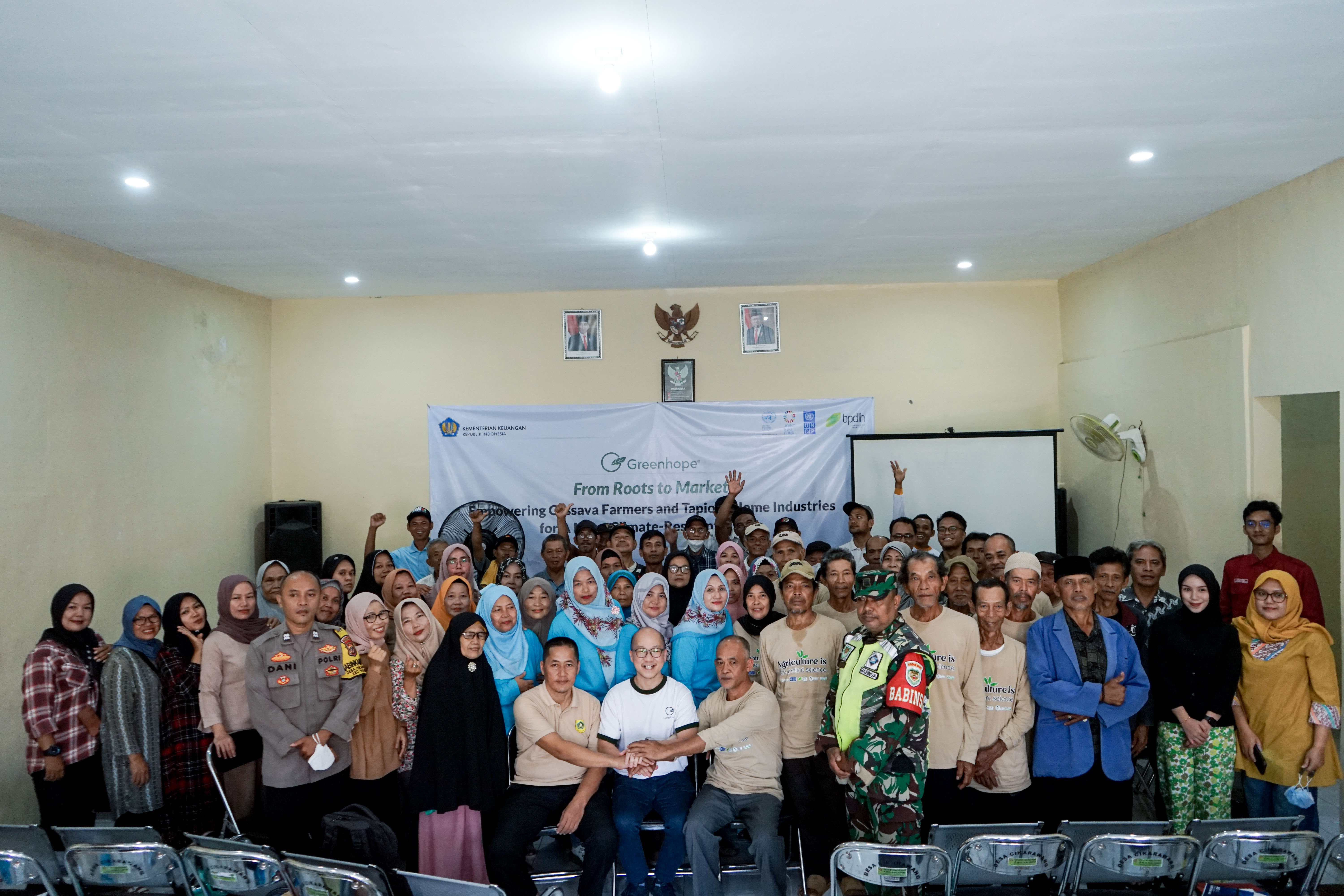Greenhope and Local Cassava Farmers Build a Fair Supply Chain through Fair for Life
Saturday, 23 March 2024
PT Harapan Interaksi Swadaya (Greenhope), an Indonesia-based pioneer in bioplastics, is advancing its commitment to sustainability through a long-term, grassroots-driven partnership with cassava farmers in Cikarawang Village, Dramaga Subdistrict, Bogor, West Java. Since 2016, Greenhope has implemented the Fair for Life (FFL) certification program—an internationally recognized standard for fair trade and responsible supply chains—ensuring that fairness, transparency, and sustainability are embedded across its cassava-based value chain.
A Fair Partnership Rooted in the Soil
At the heart of this initiative lies Greenhope’s collaboration with Kelompok Tani Setia (Setia Farmer Group), a cassava farmers' group consisting of approximately 20 smallholder farmers managing 20 hectares of land in Cikarawang. These farmers grow cassava using predominantly organic practices, relying heavily on natural fertilizers like manure and rarely applying synthetic chemicals—making them ideal partners for a bioplastics company committed to eco-friendly materials. Some of the members of the farmer group have collaborated with GH in the FFL project scheme.
The cassava sourced from Setia Farmer Group is processed into cassava flour and tapioca starch, which Greenhope uses as a renewable raw material in its bio-based resins: Ecoplas and Naturloop. These materials form the foundation for Greenhope’s sustainable products, including biodegradable shopping bags and compostable packaging, serving both domestic and global markets.
Transparent Pricing and Premium Support
To ensure that farmers receive fair compensation, Greenhope pays a premium price of IDR 1,650 per kilogram of cassava, significantly above the local middlemen’s market price of IDR 1,000–1,350/kg. This pricing model creates direct economic value for farmers and their communities.
Additionally, the company provides:
-
A Fair Trade Premium of IDR 125/kg,
-
A farmer group facilitation fee of IDR 75/kg,
-
Guaranteed minimum monthly purchases of 2,000 kg during harvest periods, and
-
A shared planting and harvesting schedule developed in coordination with farmers.
These components form the foundation of a transparent and predictable trade relationship, in contrast to the exploitative uncertainty often found in conventional agricultural trade.
Community Empowerment Beyond Trade
Greenhope’s involvement goes well beyond transactional purchasing. The company has actively supported the farmers and broader community in numerous areas, including:
Infrastructure Development
-
Building and repairing village farm paths and two critical bridges, improving accessibility for farmers to reach their fields.
-
Constructing local tapioca flour processing and drying facilities, enabling added-value activities within the community.
Women’s Empowerment and Local Product Innovation
-
Supporting Kelompok Wanita Tani (KWT)—a local women’s farming group—through training in food processing techniques.
-
Helping create cassava-based products like traditional cakes, egg rolls, "mie mocaf" (cassava noodles), and SIMICO-brand instant noodles packaged in eco-friendly designs developed by Greenhope.
Capacity Building and Sustainability Education
-
Providing training on organic farming, composting, and safe handling of agricultural tools.
-
Distributing personal protective equipment (PPE) and facilitating workplace safety (K3) training.
All of these efforts have significantly improved the community’s ability to manage agricultural production, enhance income streams, and reduce dependence on volatile commodity markets.
Social and Environmental Impact
The implementation of FFL has delivered tangible benefits:
-
Farmers enjoy higher, stable income thanks to premium pricing.
-
The farmer group now has the technical capacity and infrastructure to produce tapioca flour, mocaf flour, cassava noodles, instant noodles, and other food derivatives.
-
Farming practices are largely low-input and environmentally friendly, aligning with Greenhope’s vision of regenerative agriculture.
Moreover, the partnership fosters rural resilience by strengthening farmer organizations and creating space for women’s economic participation, which is often underrepresented in agriculture.
Challenges: Aging Farmers and Land Conversion
Despite the progress, challenges remain. Many of the farmers involved are elderly and have low levels of formal education, making knowledge transfer and adoption of new practices a slower process. Additionally, the threat of land-use change is growing, with parts of the area being converted into residential developments and commercial establishments like cafés.
One of the most pressing concerns is the lack of interest from the younger generation to pursue cassava farming, which could impact the long-term sustainability of the community's agricultural livelihoods.
Commitment to a Just and Regenerative Future
Greenhope views its FFL program not merely as a compliance requirement but as a core value of its operations. Moving forward, Greenhope is committed to:
-
Scaling its partnership model to include more smallholders across Indonesia.
-
Assisting in the strategic use of Fair Trade Premium funds (currently unutilized as of February 2025) for projects democratically decided by the farmer group.
-
Investing in youth engagement, climate-smart agriculture, and rural entrepreneurship.
-
Promoting sustainable material innovation rooted in fair, traceable, and community-based sourcing.
“We believe that true sustainability begins at the grassroots—by ensuring dignity, fairness, and opportunity for every farmer we work with. Fair for Life is not just a certification; it is a way of life, and we are proud to grow this vision together with our farmer partners.”
— Greenhope Sustainability Team



